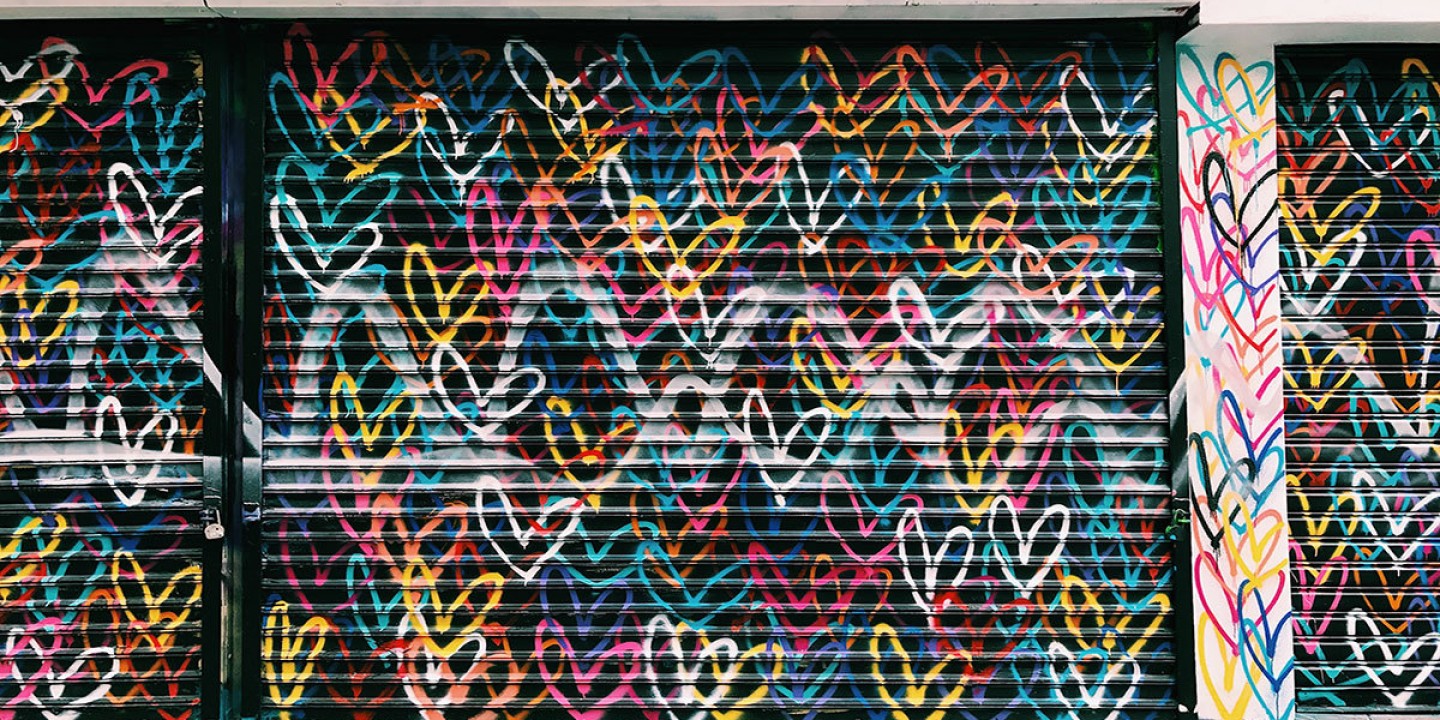
The setting by the lake was beautiful. The people were beautiful, the food was beautiful, and we were in a beautiful restaurant surrounded by beautiful things. I felt completely comfortable. I felt like I was right where I belonged, surrounded by the lovely and the attractive things of life.
It is easy to love a beautiful space, one that is clean and sparkling and filled with elegant accessories. It is easy to love the well-groomed and well-dressed people seated at the table with you, who are charming and kind. Beauty is seductive and enticing, and I was fully drawn into this environment of elegance and ease.
Read our latest issue or browse back issues.
My return home, which eventually involved a subway ride and a walk through several gritty city blocks, had me shaking my head at the lack of beauty and the stark contrast to my surroundings just hours earlier. Everything looked dirty and disheveled. The noise and filth levels felt overwhelming.
But my visceral reaction to this scene prompted a question that still lingers in my spirit: Who will love the ugly things in life? Who will love the people considered to be ugly? And can our feelings of disgust and distaste for the ugly keep us from fully walking in the will of God?
Who will love the children whose Black and Brown faces fail to inspire sympathy when they are innocently gunned down in the streets? Who will love the hardened souls, the mean and the cantankerous among us, when they suffer abuse and neglect? Who will love the dirty and messy spaces, the tent cities and encampments that represent someone’s home?
Who will love the ugly things in life, in a culture which prizes beauty above all things? Can we love the diseased, the dirty, and the decrepit when everything around us tells us that only the young, the beautiful, the fresh, and the new are worthy of our adoration?
The filthy streets of our inner cities are ugly, so we focus on building yet another high-end store on the beautiful side of town. Toxic waste is dangerous and unsightly, so we build a dump in the community deemed ugly, instead of near the community of beautiful and well-manicured homes. The reality of homelessness and mental illness and poverty is ugly, so we focus on the cuteness of potential babies instead of loving the already existing souls in need of our care and support.
The hopelessness, despair, and anger on the faces of those around us are ugly, so we focus our time and attention on the beautiful, the rich, and the famous. And by deflecting our thoughts away from the ugliness of reality, we avoid confronting the ugly places in our own hearts—including our vanity, pride, shallowness, and indifference.
We elevate the beautiful things in life and ignore the ugliness that made them possible. We want the flawless diamond without having to come to terms with the backbreaking labor of children toiling in dangerous mines. We want the oceanfront view without acknowledging that our actions are destroying the natural environment we claim to love. We want comfort and ease and beauty without taking into account the ugliness an inch beneath the surface.
Jesus modeled a more excellent way. He deliberately walked with and lived among the “ugly” people of his day: people who were homeless, people with communicable diseases, the disreputable. Jesus made his earthly home among people of ill repute and ministered in uninviting places, loving those whose own society considered them unlovable and unworthy. This is how God loves all of creation—despite our transgressions, despite our unrighteousness, despite our faults. Even in the ugliness of our sins, our arrogance, and our narrow-mindedness, God continues to call us lovingly and patiently to repentance and repair.
It is easy to love God from a place of comfort and beauty. Sitting in that beautiful restaurant near that beautiful lake, it was no hardship to give thanks for the food and the company around me. It was effortless to feel the presence of God walking among the mature trees and smelling the fresh mountain air. The beautiful wonders of God’s creation were on full display, and from that position of privilege, I could readily taste and see God’s goodness. The challenge is holding onto that same thankfulness in the ugly places, even if our human emotions would have us believe that God is absent.
Psalm 139:8 promises that “if I make my bed in Sheol,” God is there. In the depths of earthly misery, God is present and loving us. In the ugliness of the injection sites of people addicted to drugs, God is there. In the ugliness of war and terror, God still shows up for us. Among those whom society has discarded and incarcerated, God continues to walk. In the ugly places and situations where many of us feel nothing but distaste and disgust, God is still speaking and calling God’s children to life. And I am thankful for the incarnate one, the one who was rejected and despised by many and who still chooses to love me, save me, and heal me despite the ugliness and many imperfections of my heart.






